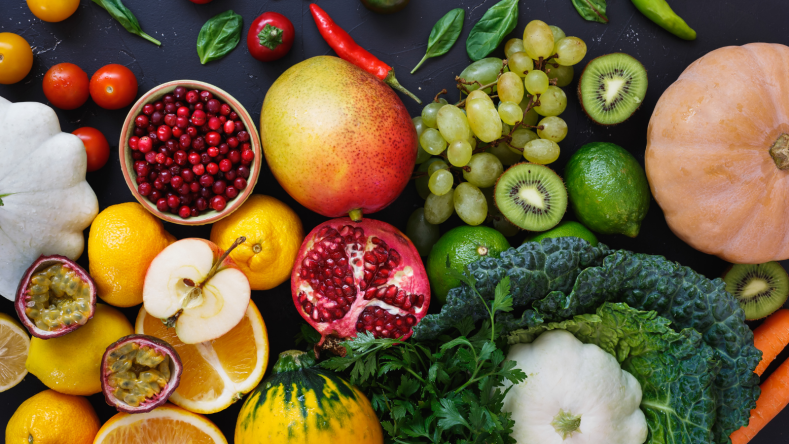What diet is good for cyclists?
This question is about Cycling
Wondering what diet is good for cyclists? Whether you’re a competitive cyclist or recreational rider, all cyclists can benefit from a diet rich in minimally processed, whole foods, particularly those containing complex carbohydrates, lean protein, healthy fats, iron, and electrolytes.
Complex carbohydrates: Complex carbohydrates, like those found in whole grains, potatoes, brown rice, beans, lentils, fruit, vegetables, and pasta are an excellent source of energy for cyclists. These carbs are particularly good for replenishing muscle glycogen before and after a ride. Because the body has limited carbohydrate stores, cyclists can benefit from incorporating complex carbohydrates in all meals and snacks. If your digestive tract is sensitive to fiber, hold off on high-fiber carbohydrates until after your ride.
Lean protein: Cyclists need protein to build and repair muscle tissue after training. Good sources include fish, chicken, turkey, eggs, Greek yogurt, beans, peas, lentils, quinoa, edamame, and tofu. For optimal post-ride recovery, aim to consume a mix of complex carbohydrates and lean protein within 60 minutes of finishing a ride.
Healthy fats: Quality fats, such as polyunsaturated and omega-3 fats, can support hormonal health and reduce inflammation, both of which are important for cyclists. Omega-3 fats in particular can have big benefits for cyclists as they reduce inflammation early in the inflammatory cascade and have been shown to be beneficial for muscle recovery post-exercise, heart health, liver function, metabolic health, and more [
1
,2
,3
]. Fatty fish, avocados, nuts, seeds, and quality, plant-based oils are all good sources of healthy fats.Iron: Iron is incredibly important for cyclists as it is a key component of hemoglobin, a protein in red blood cells that transports oxygen to working muscles. Deficiency, with or without anemia, can impair muscle function and limit work capacity [
4
]. Good sources of iron include lean red meat (limited to 1-2 times/week), muscles, oysters, sardines, beans, tofu, enriched grains, fortified cereals, and dried apricots.Electrolytes: Electrolytes (like sodium, potassium, calcium, magnesium, and chloride) are electrically-charged minerals (including sodium, potassium, calcium, magnesium, and chloride) that are critical for muscle and nerve function and help regulate fluid balance. Calcium is one such electrolyte that is especially important for runners as it is needed for the growth, maintenance, and repair of bone tissue. Since the body’s electrolyte needs increase with high-impact exercise like running, it’s recommended to include certain nutrient-rich foods into your diet. Fresh fruits and veggies and coconut water are natural sources of electrolytes, while milk, yogurt, cheese, and some types of tofu are good sources of calcium.
How much of each of these foods and the individual nutrients you need will vary from person to person. If you’re looking to optimize your nutrition for cycling, read our science-backed guide to improving cycling performance

People also ask:
References:
Office of dietary supplements - omega-3 fatty acids. (2020, October 1). Retrieved February 03, 2021, from
https://ods.od.nih.gov/factsheets/Omega3FattyAcids-Consumer/
VanDusseldorp, T. A., Escobar, K. A., Johnson, K. E., Stratton, M. T., Moriarty, T., Kerksick, C. M., Mangine, G. T., Holmes, A. J., Lee, M., Endito, M. R., & Mermier, C. M. (2020). Impact of Varying Dosages of Fish Oil on Recovery and Soreness Following Eccentric Exercise. Nutrients, 12(8), 2246.
https://doi.org/10.3390/nu12082246
Marshall, R. N., Smeuninx, B., Morgan, P. T., & Breen, L. (2020). Nutritional Strategies to Offset Disuse-Induced Skeletal Muscle Atrophy and Anabolic Resistance in Older Adults: From Whole-Foods to Isolated Ingredients. Nutrients, 12(5), 1533.
https://doi.org/10.3390/nu12051533
Thomas, D. T., Erdman, K. A., & Burke, L. M. (2016). Position of the Academy of Nutrition and Dietetics, Dietitians of Canada, and the American College of Sports Medicine: Nutrition and Athletic Performance. Journal of the Academy of Nutrition and Dietetics, 116(3), 501–528.
https://doi.org/10.1016/j.jand.2015.12.006
